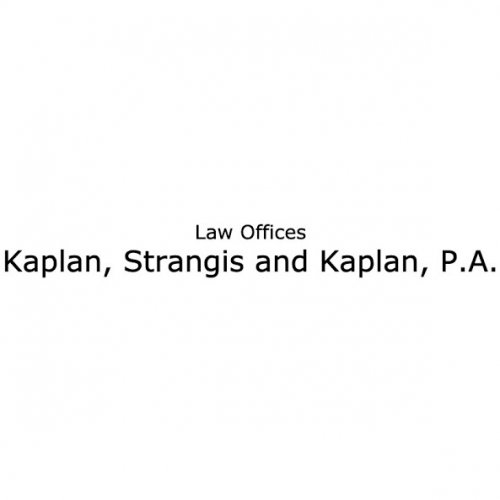Best Administrative Lawyers in United States
Share your needs with us, get contacted by law firms.
Free. Takes 2 min.
Or refine your search by selecting a city:
List of the best lawyers in United States
About Administrative Law in United States
Administrative law in the United States is the body of law that governs the activities of administrative agencies of government. It covers a wide range of actions taken by federal, state, and local agencies, from rulemaking and regulation to enforcement of specific regulatory agendas. Administrative law serves to oversee the functions of these agencies, ensuring their actions abide by the statutes and that they are acting within their designated authority. It plays a crucial role in regulating economic activities, protecting public health, safety, and the environment, and enforcing the rights and obligations of various parties.
Why You May Need a Lawyer
Individuals and businesses may find themselves needing a lawyer specializing in administrative law in several situations, including:
- Appealing a decision made by an administrative agency that affects personal or business interests.
- Navigating complex regulations related to licensing, permits, or regulatory compliance.
- Challenging fines, penalties, or enforcement actions taken by a government body.
- Participating in public hearings or rulemaking processes.
- Dealing with employment matters related to government employees or disputes involving administrative entities.
Local Laws Overview
Administrative laws can vary between different states and local jurisdictions in the United States, with specific rules governing how state and local agencies operate. However, some key federal administrative law tenets that are universally applicable include:
- The Administrative Procedure Act (APA) which establishes the procedures for federal rulemaking and adjudication.
- Freedom of Information Act (FOIA) that allows for the disclosure of federal agency records to the public.
- Federal regulations that set standards and requirements across different sectors such as telecommunications, environmental protection, and labor rights.
Each state also has its own set of administrative statutes and procedures, providing unique frameworks under which state agencies operate.
Frequently Asked Questions
What is administrative law?
Administrative law is a branch of law that oversees the rules, regulations, and procedures established by government agencies. It integrates both the creation and the operation of these agencies, as well as their interactions with the public.
How do I know if I should challenge an administrative decision?
You should consider challenging an administrative decision if you believe the agency did not follow legal procedures, acted beyond its authority, or if the decision is unsupported by evidence. Consulting with an administrative lawyer can give you insight into whether your case has merit.
What is the role of an administrative lawyer?
An administrative lawyer assists clients in dealing with government regulations and disputes with government agencies. This may involve representing clients in hearings, negotiating compliance issues, or litigating administrative appeals.
What are administrative hearings?
Administrative hearings are formal proceedings used by government agencies to resolve disputes. They resemble court trials but are typically less formal and are presided over by an administrative law judge rather than a judge in a traditional court.
How do I file a Freedom of Information Act (FOIA) request?
FOIA requests are submitted to the specific agency that holds the records you seek. A request must reasonably describe the records and be in accordance with the agency’s procedures regarding format and fees.
What can I expect during an administrative law proceeding?
Expect to present evidence and arguments to an administrative law judge. Both parties will have the opportunity to call witnesses and make statements. Afterwards, the judge will issue a decision.
Can agencies make rules without public input?
Typically, agencies are required to provide notice of proposed rulemaking and allow the public to comment. The APA mandates this process for federal agencies, although emergency rules may sometimes be enacted without prior notice.
What recourse do I have if I disagree with an administrative agency's rule?
You may have the option to challenge the rule in court, argue it lacks statutory authority, was not properly promulgated, or is unconstitutional. You should generally consult with a lawyer to explore your options.
Are all administrative laws federal?
No. While many administrative laws are enacted at the federal level, each state and municipal government has its own administrative laws and procedures pertinent to local agencies.
What is judicial review in administrative law?
Judicial review is the mechanism through which courts examine the actions of administrative agencies to ensure they comply with constitutional mandates and statutory authority.
Additional Resources
For further assistance, consider reaching out to these resources:
- American Bar Association’s Section of Administrative Law and Regulatory Practice.
- The Office of Administrative Law in various states for guidance on state-specific regulations.
- Local law libraries or legal aid societies for access to legal resources and support.
- Federal agency websites such as the U.S. Environmental Protection Agency (EPA) or the Department of Labor for regulatory guidance and contact information.
Next Steps
If you believe you need legal assistance in administrative law, consider the following steps:
- Identify your specific legal issue to determine whether it falls under the category of administrative law.
- Gather all relevant documentation and records related to your case.
- Consult with an administrative law attorney for an evaluation of your situation and to explore your legal options.
- Contact your state or local bar association for referrals to qualified administrative law attorneys in your area.
Taking proactive steps and seeking knowledgeable legal counsel can help navigate the complexities of administrative law efficiently and effectively.
Lawzana helps you find the best lawyers and law firms in United States through a curated and pre-screened list of qualified legal professionals. Our platform offers rankings and detailed profiles of attorneys and law firms, allowing you to compare based on practice areas, including Administrative, experience, and client feedback.
Each profile includes a description of the firm's areas of practice, client reviews, team members and partners, year of establishment, spoken languages, office locations, contact information, social media presence, and any published articles or resources. Most firms on our platform speak English and are experienced in both local and international legal matters.
Get a quote from top-rated law firms in United States — quickly, securely, and without unnecessary hassle.
Disclaimer:
The information provided on this page is for general informational purposes only and does not constitute legal advice. While we strive to ensure the accuracy and relevance of the content, legal information may change over time, and interpretations of the law can vary. You should always consult with a qualified legal professional for advice specific to your situation.
We disclaim all liability for actions taken or not taken based on the content of this page. If you believe any information is incorrect or outdated, please contact us, and we will review and update it where appropriate.
Browse administrative law firms by state in United States
Refine your search by selecting a state.















